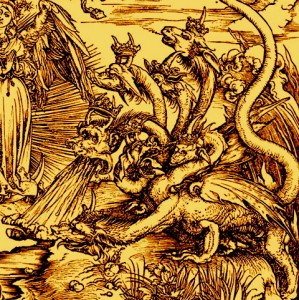 In spite of the hermeneutical difficulties of the recent Obama-Antichrist video, I am still one who believes in a futuristic coming of a man who we could describe as “The Antichrist.” Perhaps in some circles, such a notion is worthy only of matching historical events with a 1st century villian. I still believe the world will see such a person.
In spite of the hermeneutical difficulties of the recent Obama-Antichrist video, I am still one who believes in a futuristic coming of a man who we could describe as “The Antichrist.” Perhaps in some circles, such a notion is worthy only of matching historical events with a 1st century villian. I still believe the world will see such a person.
Let me also state before going any further. The issue of eschatology is not foundational to fellowship with me. In fact, someone could hold a very different view from mine and still be a member of our church, assuming they would be respectful of the position our leadership holds and not divisive. I have good friends (some of whom were in fact members of churches I have pastored) who think the Anti-Christ was a Roman General (Titus) or a Roman Emperor (Nero) of long ago. I disagree – and I still enjoy their company and fellowship over the gospel.
Also I do not intend this blog to be a place that hounds others about their eschatological position. I’m currently preaching through a book of the Bible (Zephaniah) that I think has a lot to say in a futuristic way about eschatology, so I’m going to post a few of my own personal positions on the biblical issues surrounding the Antichrist and eschatology. If that doesn’t suit you or you are not interested in any more premillennial perspectives on what others have made millions of dollars fictionalizing, feel free to move along and read something more appealing.
2 Thessalonins 2:3-12 is perhaps one of the best descriptions of the Antichrist in Scripture. I take it that Paul had taught the Thessalonians much about the coming of Jesus (meaning the multifaceted events associated with the return of Jesus to the earth). Some had come in to their midst and contradicted what the Apostle had taught about a few of the events associated with the coming of Jesus; namely, the gathering of the saints to Jesus and the day of the Lord.
I take the gathering of the saints to Jesus to be a reference to what is typically called, “the rapture:” the snatching away of those believers in Christ who had passed away or who were alive at the time it takes place. Paul describes it more clearly in 1 Thessalonians 4:13-18 and 1 Corinthians 15:50-58.
The day of the Lord is another multifaceted series of events that appears to be distinct from “our gathering together to him.” I say multifaceted, because the use of the phrase “day of the Lord” refers to a period of judgment most associated with the nation of Israel (Joel 2:28-32), judgment upon the nations (Joel 3:2; Zephaniah 2:1-3:7), as well as an eventual restoration of Israel (Joel 3:1, 18-21; Zephaniah 3:12-20). I say distinct, because even though the gathering and the day of the Lord are mentioned in the same section, such does not mean that they are to be equated.
Evidently someone in the Thessalonian congregation had instructed them that the events of persecution they were enduring was an indication that they were in fact in this period of judgment known as the day of the Lord. The Thessalonians were shaken in that they were unclear now as to “our gathering together to Him” (1 Thess 2:1). Evidently Paul had taught something different than they were hearing about the day of the Lord. My best guess is that Paul did not believe the day of the Lord was current in his time. More than likely, he had taught that the gathering to the Lord would precedede the period of judgment. Thus, when the false teachers indicated that the day of the Lord was present, the Thessalonians were shaken regarding Paul’s indication that the gathering would precede it.
Paul spends the remainder of 1 Thess 2:3-12 describing why it is that the day of the Lord has not yet come. And one of the major reasons is that the man of lawlessness had not yet been revealed. So, he describes a series of characteristics to describe this man which would then calm them down and remind them that their present hardships were far removed from the day of God’s wrath.
More tomorrow.








I agree that difference in stuff like the end times should not be reasons to not fellowship. The core doctrines of Jesus dying in our place, being buried, resurrected on the third day, and ascending to the Father are the things that are not debateable. Too often we let our pride of opinion get in the way. Very good post! Blessings to ya!
My recent post Sunday Fishing Lesson